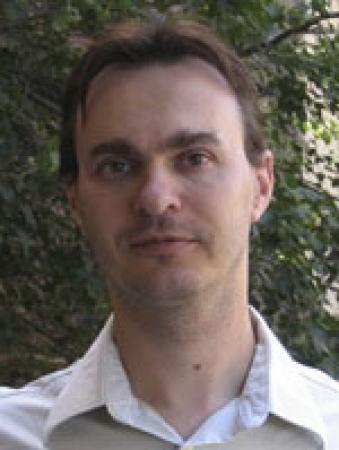
Dmitri Uzdensky
University of Colorado Boulder; Institute for Advanced Study
Friday, September 23, 2016
3:00pm
Abstract: Many spectacular astrophysical phenomena involving black-hole jets, gamma-ray bursts, and pulsar wind nebulae, exhibit intense and rapid flares of high-energy radiation, often exhibiting nonthermal, power-law photon spectra. Magnetic reconnection — a basic plasma process of rapid magnetic-field rearrangement and associated violent release of magnetic energy — is one of the favored physical mechanisms powering these very energetic events. In the past few years we have seen great progress in our theoretical understanding of the basic physics of this process and in our ability to characterize quantitatively the resulting nonthermal particle acceleration and radiation, with important astrophysical implications. These exciting new developments were mostly achieved with first-principles kinetic (e.g., particle-in-cell) simulations of relativistic magnetic reconnection in collisionless plasmas; including studies that self-consistently incorporate synchrotron radiation reaction and compute the observable radiation signatures. We now have a firm numerical evidence that reconnection can indeed be an efficient relativistic particle accelerator. In this talk I will review the recent theoretical and simulation results and will discuss their astrophysical implications.
Bio: Dmitri Uzdensky is an Associate Professor at the University of Colorado Boulder. He received his PhD in Plasma Physics at Princeton University in 1998, working with Russell Kulsrud on magnetic reconnection, and then held postdoctoral positions at the University of Chicago (1998-2001) and at the Kavli Institute for Theoretical Physics in Santa Barbara (2001-2004). In 2004 he moved back to Princeton as a research stuff member in the Department of Astrophysical Sciences there, and in 2009 joined Physics faculty at the University of Colorado in Boulder. He is now on a sabbatical at the Institute for Advanced Study in Princeton this academic year.